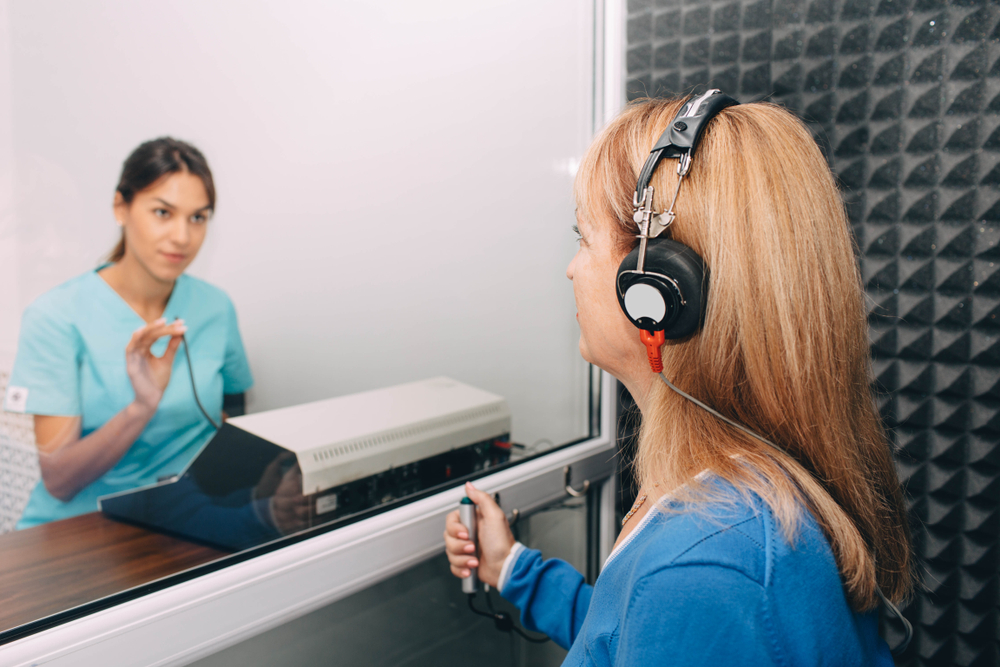Maria pauses to reflect on the last time she had her hearing tested—it must have been four years ago, at least. Back then, she could afford to skip regular visits to her hearing specialist. But now, in her fifties, Maria realizes the importance of scheduling annual hearing tests. And the same goes for you.
What happens during an annual hearing test?
Annual hearing assessments are typically straightforward. You enter the clinic, listen to various sounds, occasionally raise your hand in response, and may have a few sensors placed near your ears. Following this, you’ll receive your audiogram, providing insights into any potential hearing loss.
For most, like Maria, the process is painless. These tests, however, are more than just routine—they are vital. Utilizing sophisticated diagnostics, hearing specialists can detect signs of hearing loss long before they impact your daily life significantly.
Why are yearly hearing tests important?
The ideal scenario involves scheduling a hearing test every year, a simple task that can often be arranged before leaving your specialist’s office. This ensures a timely reminder for your next appointment—a hassle-free arrangement!
There are key reasons to prioritize annual hearing evaluations.
Gradual onset of hearing loss
Often, hearing loss results from gradual damage to the ears. The accumulation of such damage can go unnoticed for years. Meanwhile, your brain adeptly compensates, masking the issue until it becomes significant. Regular tests can:
- Detect early signs of hearing loss.
- Monitor the rate of deterioration.
- Determine appropriate interventions, such as hearing aids, to prevent further damage.
Impact on mental well-being
Hearing loss doesn’t just affect your ability to hear—it can also impact mental health in profound ways, even at seemingly mild levels of impairment.
Individuals with hearing loss may experience:
- Fatigue: Compensating for hearing loss demands considerable cognitive effort, leading to fatigue, forgetfulness, and difficulty concentrating.
- Social Isolation: Communication challenges can lead to withdrawal from social interactions, even without realizing the connection to hearing loss.
- Depression and Dementia: The social isolation resulting from hearing loss can elevate the risk of depression and dementia. Addressing hearing loss early can mitigate these risks.
Social implications of hearing loss
Beyond the individual impact, hearing loss can strain relationships and hinder social interactions. Difficulty hearing conversations in noisy environments, such as restaurants or social gatherings, may lead to frustration and withdrawal. This can impact personal connections and contribute to feelings of isolation and loneliness.
Annual hearing tests empower individuals to address these challenges proactively, preserving social bonds and enhancing their quality of life.
Workplace performance
Hearing loss can also impact professional life. In work settings, communication is essential for collaboration, productivity, and safety. Difficulties in hearing instructions, participating in meetings, or engaging in conversations with colleagues can hinder job performance and career advancement.
Regular hearing tests enable individuals to identify and address hearing issues early, ensuring continued success in the workplace.
Quality of life
Ultimately, the goal of annual hearing tests is to optimize one’s overall quality of life. Hearing plays a fundamental role in various aspects of daily living, from enjoying music and movies to staying connected with loved ones.
By prioritizing regular hearing evaluations, individuals can preserve their hearing abilities, minimize the impact of hearing loss on their lives, and continue to engage fully in the activities they enjoy.
Schedule your annual hearing test
Annual hearing tests are not just routine check-ups—they are essential for maintaining auditory health, preserving mental well-being, sustaining social connections, enhancing workplace performance, and optimizing overall quality of life. By taking proactive steps to monitor and address their hearing health, individuals can ensure a brighter and more fulfilling future.
Find a hearing specialist near you to schedule a hearing test appointment today.



